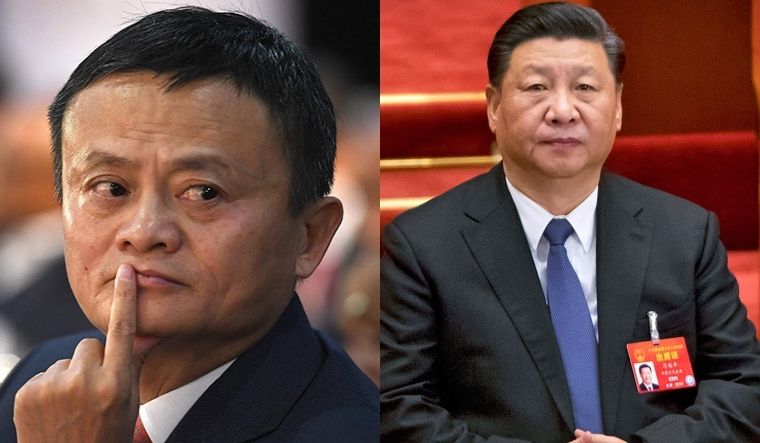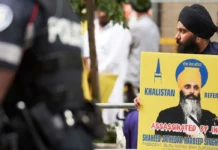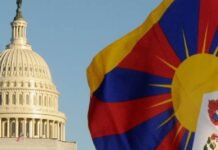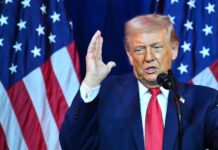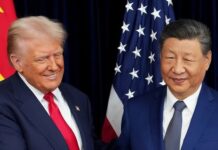TOKYO: Chinese billionaire Jack Ma and his company Alibaba are being hounded by Chinese President Xi Jinping again – third time in less than six months.
On Monday, citing the state-run Xinhua News Agency, Nikkei Asia reported that four government agencies had carried out “joint regulatory talks” with Alibaba affiliate Ant Group.
The four were the People’s Bank of China, the China Banking and Insurance Regulatory Commission, the China Securities Regulatory Commission, and the State Administration of Foreign Exchange. Xinhua reported that Pan Gongsheng, one of the central bank’s deputy governors, answered questions from reporters on behalf of the four departments.
He said the reason behind financial authorities questioning Ant Group again was to strengthen anti-monopoly and prevent the disorderly expansion of capital.
It was the new slogan that the Chinese Communist Party has been pushing since October — curbing market monopolies and preventing the disorderly expansion of capital — and not existing law that was cited first, reported Nikkei Asia.
However, Katsuji Nakazawa, in an article in Nikkei Asia wrote that the wielding of newly created rules to penalize e-tailer hints at political motive – Xi extending the tactics he used in his signature anti-corruption campaign to private companies — with those rules, he cracked down on influential political foes, even those in China’s highest echelon.
On Saturday, a long-dormant anti-monopoly law was suddenly and strictly applied in the form of a record USD 2.8 billion fine on Alibaba, equivalent to 4 per cent of Alibaba’s domestic sales in 2019.
During the talks on Monday, the four regulatory bodies told Ant to transfer all financial operations, including the Alipay service, to a new financial holding company to be set up later and to subject them to strict monitoring and supervision by authorities, reported Nikkei Asia.
Chinese regulators had earlier held regulatory talks with Ant executives – in November, when Ant’s plan to raise more than USD 34 billion in the world’s largest initial public offering was blocked at the last minute and in December, Ant (Alibaba affiliate) executives were questioned again.
In China, where the party holds all the levers, the act of questioning a company’s top executives hints at an unfavorable destiny. Questioned twice, and then a third time? said Katsuji.
As per him the shift may be related to party’s next national congress, in 2022, where Xi is expected to extend his reign. Xi has cemented his political standing within the party. But he has yet to tighten his grip on the business community. Xi’s uneasiness about private sector is related to Shanghai trauma of 2015, when stock market panic sent the benchmark Shanghai Composite Index tumbling 8 per cent, reported Nikkei Asia.
A team of investigators led by the then-vice minister for public security (police) entered the building of the China Securities Regulatory Commission in Beijing’s financial district and declared a strict joint crackdown on malicious short selling.
The presence of the police signaled that the Xi leadership team detected a whiff of politics behind the whole affair. That leadership team is now pressing private companies to get off the fence, show the flag and support Xi’s political agenda, as it did to party members earlier in the anti-corruption campaign.
Xi aims to extend his reign, he needs to take control of the economic realm, as he has done with the political domain, opined Katsuji. Moreover, there is also some political issues that might be involved – Ma’s strong connections to China’s “princelings,” the children of party leaders; “second-generation reds,” a smaller group of children whose parents joined the revolution before the 1949 establishment of the People’s Republic; and guan er dai, children of government officials.
Xi himself is a second-generation red, being the son of former Vice Premier Xi Zhongxun. Alibaba’s rapid growth was supported by Chinese leaders before Xi took the helm. Ma had particularly strong connections to the “Shanghai faction,” a group of people close to former President Jiang Zemin, reported Nikkei Asia.
The Shanghai faction is also called the “machine-building industry faction.” For years, the Shanghai faction strongly influenced the industrial sphere. But with Xi having rapidly concentrated power, forces that are not close to Xi have had their political influence significantly eroded. There are concerns about Ma’s future. “Even if he is safe now,” one pundit said, “there is no guarantee that he will remain so in the future.”
Many influential business leaders have suddenly been sent to prison over the past eight years. Among them is Wu Xiaohui, the top official of Anbang Insurance Group, a private insurer that grew rapidly into the third-biggest player in China, reported Nikkei Asia. (ANI)

